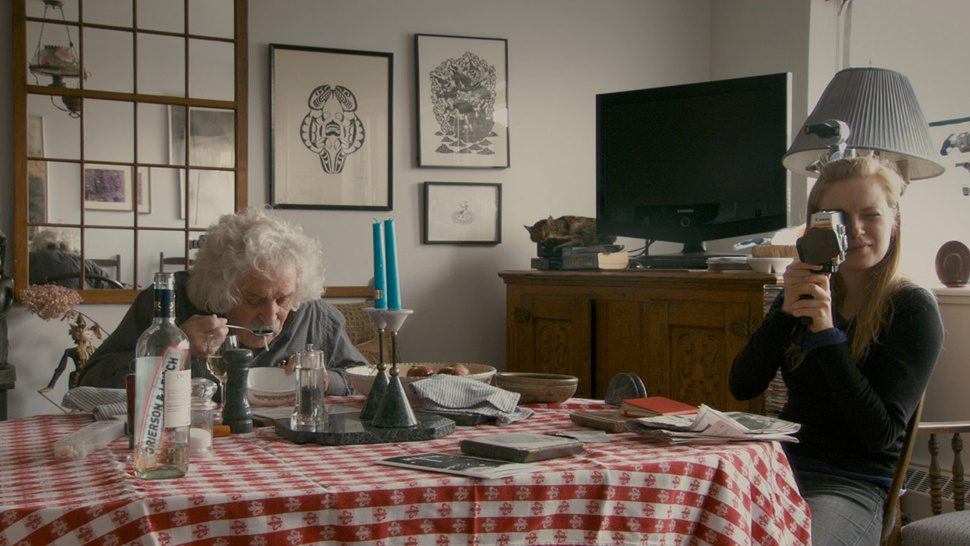Stories We Tell is a documentary revolving around the family of Canadian director Sarah Polley, who, as we learn over the film’s runtime, had quite the tumultuous past. Through a series of interviews and archive footage, she weaves together an intimate story in which everyone involved tells their version of her family’s story. The central focus here is Polley’s late mother, whose wild ways would leave an impact on everyone she encountered, but none more than the director herself.
It’s clear from the early interviews that we’re leading up to some sort of twist, and that’s true, but the twist is just the beginning of an even larger storyline. I am intentionally vague on the events that happen because like any great film, the less you know going in, the more rewarding the viewing experience will be.
There are multiple engrossing interviewees, but at the center of all this is Michael, Polley’s father, who is not only interviewed but is shown reading a version of this story that he had written shortly after the key events. Through his storytelling, we capture a narration, a script that keeps the movie flowing. Through his interview, we see him humanized, a parallel commentary.
Polley reminds us that the oldest trick in filmmaking, juxtaposition, is still one of the best.
Polley reminds us that the oldest trick in filmmaking, juxtaposition, is still one of the best. If you show an image, it has no meaning. But if you show an image with context, it can drop an emotional bomb on the audience. When we first see the opening shot, it’s just a beautifully composed car passenger’s point of view of telephone wires along a winter road. Anyone has sat in a car and watched the world pass by. But when it is revealed what that shot represents, one all-important car ride, it carries massive emotional weight.
Is this opening shot actual footage from that very moment? Nope. Does it matter? In this case, not at all: this is what many modern documentaries are realizing. It’s by no means dishonest to use staged imagery to enhance the film’s realism and thematic feeling. That concept plays a larger role in the latter half of the film.
I’ve spoken predominantly about the engrossing story that is told here, but the style is so crucial toward why the film works. Before the interviews start we see the behind-the-scenes, as all of the staged interviews are set up, rarely shown in a film. Polley does everything she can to make it translucent that this is a film, the people she’s showing are telling their real stories and exposes everything that could seem staged. Not all of the stories line up – all the relatives have their own version – but Polley nonetheless succeeds displaying they’re all telling the truth.
By the end of the film, we know a lot about Sarah Polley, who started out as a young actress in movies such as Go and the Dawn of the Dead remake, and by growing up in a cinematic world has developed a natural eye for film and performance. Her first two directing projects, Away from Her (2006) and Take this Waltz (2012) showed emotional grace and potential to connect to audiences. Stories We Tell is one of the most personal films that has ever been made. As is the case with quality specific work, it is, therefore, more universal due to its authenticity. This documentary is now available to watch on Netflix.
‘Streamable Sundays’ highlights the abundance of films available now to stream on Netflix and other online platforms. Every Sunday, contributor Nelson Tracey will spotlight a new film that you can watch today– for suggestions feel free to email him at trace102@mail.chapman.edu.
H. Nelson Tracey
Nelson is a film director and editor from Denver based in Los Angeles. In addition to writing for Cinemacy, he has worked on multiple high profile documentaries and curates the YouTube channel "Hint of Film." You can check out more of his work at his website, hnelsontracey.com

